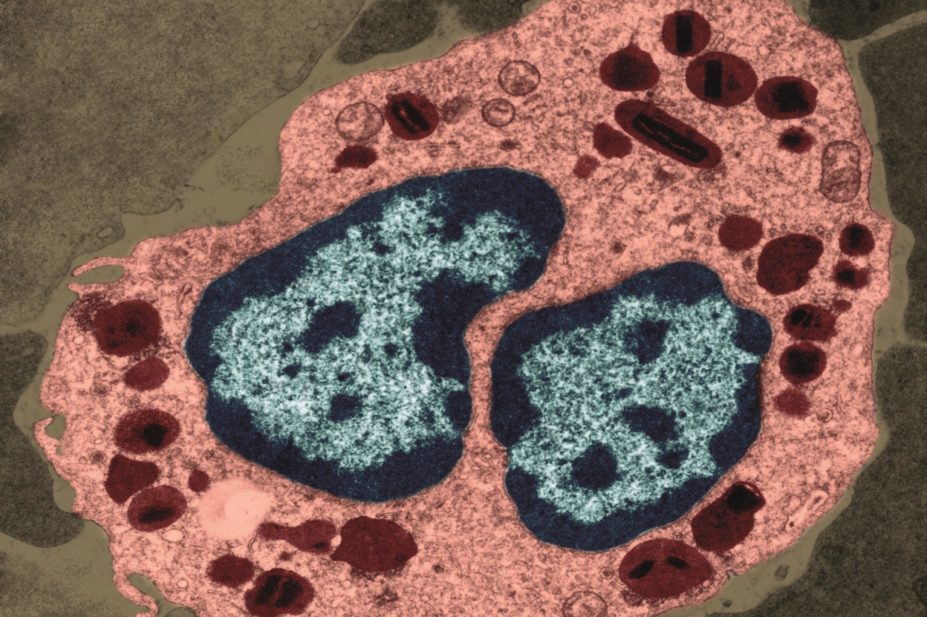
Biophoto Associates / Science Photo Library
The US Food and Drug Administration (FDA) has approved mepolizumab (GlaxoSmithKline’s Nucala), a humanised interleukin-5 antagonist monoclonal antibody, for use with other drugs to treat asthma in patients aged 12 years and over.
It is approved for patients who have a history of severe asthma attacks, or exacerbations, despite receiving their current asthma medications, the FDA says.
Mepolizumab — produced by recombinant DNA technology in Chinese hamster ovary cells — reduces severe asthma attacks by cutting the levels of blood eosinophils, a type of white blood cell that contributes to the development of asthma.
Patients receive Nucala once every four weeks by subcutaneous injection into the upper arm, thigh or abdomen.
The drug’s safety and efficacy were established in three double-blind, randomised, placebo-controlled trials in patients with severe asthma on currently available therapies.
Researchers administered either Nucala or a placebo to patients every four weeks as an additional asthma treatment. Compared with the placebo, patients with severe asthma receiving Nucala had fewer exacerbations requiring hospitalisation and/or emergency department visits, and a longer time to the first exacerbation.
Patients receiving Nucala also saw greater reductions in their daily maintenance oral corticosteroid dose, while maintaining asthma control, although the medication did not result in a significant improvement in lung function.
Common side effects include headache, injection site reactions, back pain and fatigue. Hypersensitivity reactions can occur within hours or days of being treated with the agent, and herpes zoster infections have occurred, the FDA says.
In September 2015, the European Medicines Agency’s Committee for Medicinal Products for Human Use adopted a positive opinion for mepolizumab, recommending the granting of a marketing authorisation for the drug for the treatment of severe refractory eosinophilic asthma.


